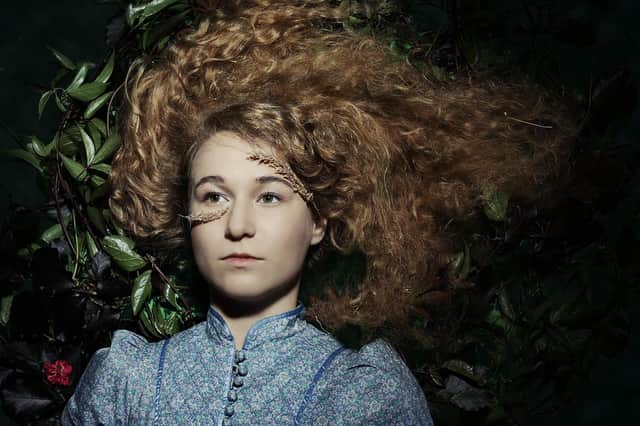Lizabett Russo: "I will speak for nature in every gig I do"


Our blighted environment, the plight of the immigrant, and the interconnectedness of everything on our beleaguered planet … all these things inform the songs of Edinburgh-based Romanian singer-songwriter Lizabett Russo, who declares them in her extraordinary voice, sinuous or ethereal as it swoops and soars through octaves.
There’s a certain resonance in the fact that her fourth album, While I Sit and Watch This Tree, Vol 1, due for release in late November on the independent Last Night From Glasgow label, has been recorded under lockdown, during a global pandemic. Her compact but sensitively attuned band comprised her domestic partner and co-producer, guitarist Graeme Stephen, Dutch cellist-percussionist Oene van Geel, German percussionist Udo Dermadt and fiddler Aidan O’Rourke, well-known for his work with Lau and much else.
Advertisement
Hide AdAdvertisement
Hide Ad“It was kind of strange, doing the album like this,” she says of recording under Covid constraints, though it must help when your other half is a notably inventive guitarist judiciously deploying looping and other effects. The other musicians were recorded remotely. Nevertheless, between them they create often beguiling soundscapes.
The opening track of Vol 1 (Russo hopes the next volume might be more internationally collaborative) hauls you in with the irresistibly beckoning Two Hands, with its ringing and whirring percussion. It is informed by a journey she made to the Ecuadorian jungle, ostensibly to observe indigenous shamanic practices and also herbalism, which she is currently studying, but she found herself listening at night, above the constant song of cicadas, to the pervasive hum from the plant of oil companies drilling in the surrounding forest. “I found it unbelievable that you go to such an amazing place and you hear the last thing you want to hear.”
Journeying of another kind is expressed in the wistful recollection of I Was Young When I Left Home. She was: as an introverted 18-year-old she left her home in Transylvania to study social sciences at Aberdeen University, which gave her some sharp-end experience of racism and discrimination against immigrants. “It was pretty difficult,” she recalls. “Because I’d never been outside my country before that, I never really knew what people thought about Romanians. There were some bad views about and the media didn’t help at all.”
Feeling isolated in the Granite City, she started playing guitar and writing her first songs. “It was a bit depressing, to be honest, not what I thought my uni life would be. She laughs wryly: “So I made my own therapy by writing music.”
She began to discover her astonishing voice through open mic sessions during a miserable gap year she spent in London. Maybe, she muses, “it is true that you have to suffer for your art if you are to develop your own style. I think that my voice just developed naturally as I kept writing music. My vocal range is a journey of exploration; the more I exercise it the more I discover what I can do with it. I listen to a lot of traditional music from all around the world and I think that also influences the way I sing.”
Back in Romania, she had never considered music as a living. The draconian Ceaușescu regime which collapsed in 1989 hadn’t encouraged cultural activity, so her parents weren’t musically involved. Interestingly, on one of the two Romanian folk songs she sings, Colo Sus Pe-un Munte, she accompanies herself on the charango, the little Andean guitar, chiming sweetly behind her breathy, almost whispered intonation. “I discovered the charango a few years ago, just by chance, and it really resonated with me, this particular tone.”
Her most powerful South American legacy, however, remains what she witnessed in Ecuador. It provoked feelings of both outrage and powerlessness, but, she says, “I made a promise to myself that I will speak for nature in every gig I do and in every work I release.”
For further information, see www.lizabettrusso.com
A message from the Editor:
Advertisement
Hide AdAdvertisement
Hide AdThank you for reading this story on our website. While I have your attention, I also have an important request to make of you.
The dramatic events of 2020 are having a major impact on many of our advertisers - and consequently the revenue we receive. We are now more reliant than ever on you taking out a digital subscription to support our journalism.
To subscribe to scotsman.com and enjoy unlimited access to Scottish news and information online and on our app, visit https://www.scotsman.com/subscriptions
Joy Yates, Editorial Director